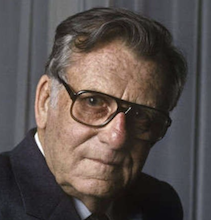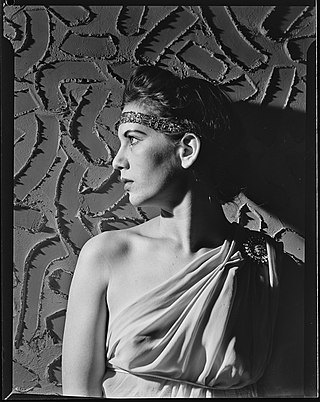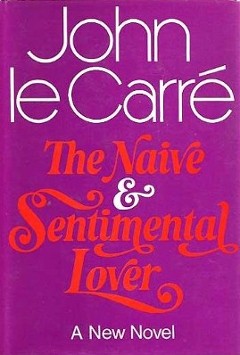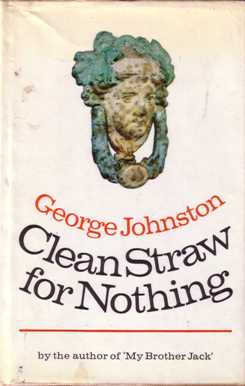
George Meredith was an English novelist and poet of the Victorian era. At first, his focus was poetry, influenced by John Keats among others, but Meredith gradually established a reputation as a novelist. The Ordeal of Richard Feverel (1859) briefly scandalised Victorian literary circles. Of his later novels, the most enduring is The Egoist (1879), though in his lifetime his greatest success was Diana of the Crossways (1885). His novels were innovative in their attention to characters' psychology, and also portrayed social change. His style, in both poetry and prose, was noted for its syntactic complexity; Oscar Wilde likened it to "chaos illumined by brilliant flashes of lightning". Meredith was an encourager of other novelists, as well as an influence on them; among those to benefit were Robert Louis Stevenson and George Gissing. Meredith was nominated for the Nobel Prize in Literature seven times.

Morris Langlo West was an Australian novelist and playwright, best known for his novels The Devil's Advocate (1959), The Shoes of the Fisherman (1963) and The Clowns of God (1981). His books were published in 27 languages and sold more than 60 million copies worldwide. Each new book he wrote after he became an established writer sold more than one million copies.
The Miles Franklin Literary Award is an annual literary prize awarded to "a novel which is of the highest literary merit and presents Australian life in any of its phases". The award was set up according to the will of Miles Franklin (1879–1954), who is best known for writing the Australian classic My Brilliant Career (1901). She bequeathed her estate to fund this award. As of 2016, the award is valued at A$60,000.

Richard Carlton Meredith, was an American writer, illustrator and graphic designer, best known as the author of science fiction short stories and novels including We All Died at Breakaway Station and The Timeliner Trilogy.

Alan McCrae Moorehead, was a war correspondent and author of popular histories, most notably two books on the nineteenth-century exploration of the Nile, The White Nile (1960) and The Blue Nile (1962). Australian-born, he lived in England, and Italy, from 1937.

Monica Elizabeth Jolley AO was an English-born Australian writer who settled in Western Australia in the late 1950s and forged an illustrious literary career there. She was 53 when her first book was published, and she went on to publish fifteen novels, four short story collections and three non-fiction books, publishing well into her 70s and achieving significant critical acclaim. She was also a pioneer of creative writing teaching in Australia, counting many well-known writers such as Tim Winton among her students at Curtin University.
George Palmer Garrett was an American poet and novelist. He was the Poet Laureate of Virginia from 2002 to 2004. His novels include The Finished Man, Double Vision, and the Elizabethan Trilogy, composed of Death of the Fox, The Succession, and Entered from the Sun. He worked as a book reviewer and screenwriter, and taught at Cambridge University and, for many years, at the University of Virginia. He is the subject of critical books by R. H. W. Dillard, Casey Clabough, and Irving Malin.

Charmian Clift was an Australian writer. She was the second wife and literary collaborator of George Johnston.
Martin Johnston was an Australian poet and novelist.
B. Wongar is a Serbian-Australian writer. For most of his literary career, the concern of his writing has been, almost exclusively, the condition of Aboriginal people in Australia. His 1978 short story collection, The Track to Bralgu, was released to critical acclaim by the foreign press, who were led to believe by publisher Little Brown that Wongar was of Aboriginal ethnicity. The revelation that Wongar was a Serbian immigrant, as well as inconsistencies in his life story, have led to controversy and allegations of literary hoax and cultural appropriation.

The Naïve and Sentimental Lover is John le Carré's sixth novel and, along with A Murder of Quality (1962), his only non-spy novel.

My Brother Jack is a classic 1964 Australian novel by writer George Johnston. It is part of a trilogy centering on the character of David Meredith. The other books in the trilogy are Clean Straw for Nothing and A Cartload of Clay. Its text is commonly studied for many English literature subjects in Australia.
George Henry Johnston OBE was an Australian journalist, war correspondent and novelist, best known for My Brother Jack. He was the husband and literary collaborator of Charmian Clift.
The non-fiction novel is a literary genre that, broadly speaking, depicts non-fictional elements, such as real historical figures and actual events, woven together with fictitious conversations and uses the storytelling techniques of fiction. The non-fiction novel is an otherwise loosely defined and flexible genre. The genre is sometimes referred to using the slang term "faction", a portmanteau of the words fact and fiction.
Dorothy Johnston is an Australian author of both crime and literary fiction. She has published novels, short stories and essays.

The Anatomy Lesson is a 1983 novel by American author Philip Roth. It is the third novel from Roth to feature Nathan Zuckerman as the main character.
Tim Villiers Heald FRSL was a British author, biographer, journalist and public speaker.

Clean Straw for Nothing (1969) is a Miles Franklin Award-winning novel by Australian author George Johnston. This novel is a sequel to My Brother Jack, and is the second in the Meredith trilogy of semi-autobiographical novels by Johnston.

The Timeless Land (1941) is a work of historical fiction by Eleanor Dark (1901–1985). The novel The Timeless Land is the first of The Timeless Land trilogy of novels about European settlement and exploration of Australia.
This article presents a list of the historical events and publications of Australian literature during 1971.











